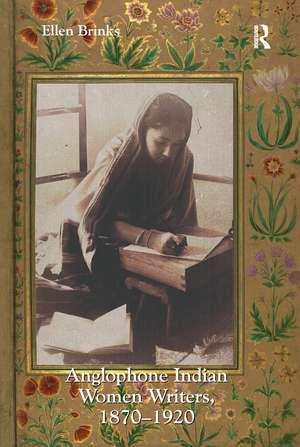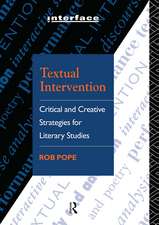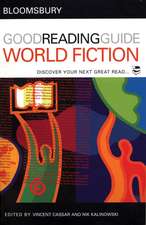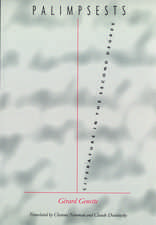Anglophone Indian Women Writers, 1870–1920
Autor Ellen Brinksen Limba Engleză Paperback – 11 noi 2016
| Toate formatele și edițiile | Preț | Express |
|---|---|---|
| Paperback (1) | 469.34 lei 6-8 săpt. | |
| Taylor & Francis – 11 noi 2016 | 469.34 lei 6-8 săpt. | |
| Hardback (1) | 1115.33 lei 6-8 săpt. | |
| Taylor & Francis – 16 ian 2013 | 1115.33 lei 6-8 săpt. |
Preț: 469.34 lei
Nou
Puncte Express: 704
Preț estimativ în valută:
89.80€ • 93.77$ • 74.16£
89.80€ • 93.77$ • 74.16£
Carte tipărită la comandă
Livrare economică 15-29 aprilie
Preluare comenzi: 021 569.72.76
Specificații
ISBN-13: 9781138255449
ISBN-10: 1138255440
Pagini: 256
Dimensiuni: 156 x 234 mm
Greutate: 0.45 kg
Ediția:1
Editura: Taylor & Francis
Colecția Routledge
Locul publicării:Oxford, United Kingdom
ISBN-10: 1138255440
Pagini: 256
Dimensiuni: 156 x 234 mm
Greutate: 0.45 kg
Ediția:1
Editura: Taylor & Francis
Colecția Routledge
Locul publicării:Oxford, United Kingdom
Notă biografică
Ellen Brinks is Associate Professor of English at Colorado State University, USA.
Recenzii
’This book goes beyond describing the writers as just converted Hindu women ... a detailed, more diverse account into the lives of Indian women reformers but also highlight[s] the complexities they (must have) negotiated across time, space, culture and religious barriers.’ FWSA blog
Cuprins
Introduction; Chapter 1 Translating Hindustan: Toru Dutt’s Poems and Letters; Chapter 2 Gendered Spaces and Conjugal Reform in Krupabai Satthianadhan’s Kamala: A Story of Hindu Life; Chapter 3 Feminizing Famine, Imperial Critique: Pandita Ramabai’s Famine Essays; Chapter 4 The Imperial Family Begins in the Nursery: Cornelia Sorabji’s ‘Baby-fication’ of Empire; Chapter 5 The Voice of India: Sarojini Naidu’s Nationalist Poetics; epilo Epilogue;
Descriere
Brinks examines the work of Toru Dutt, Krupabai Satthianadhan, Pandita Ramabai, Cornelia Sorabji and Sarojini Naidu. These women are deeply rooted and connected to both South Asian and Western cultures and found large audiences in their public roles as writers, reformers, activists and cultural translators. Informed by extensive archival work, Brinks's close readings of their literary writings suggest new ways of understanding a range of issues central to feminist postcolonial studies.

















